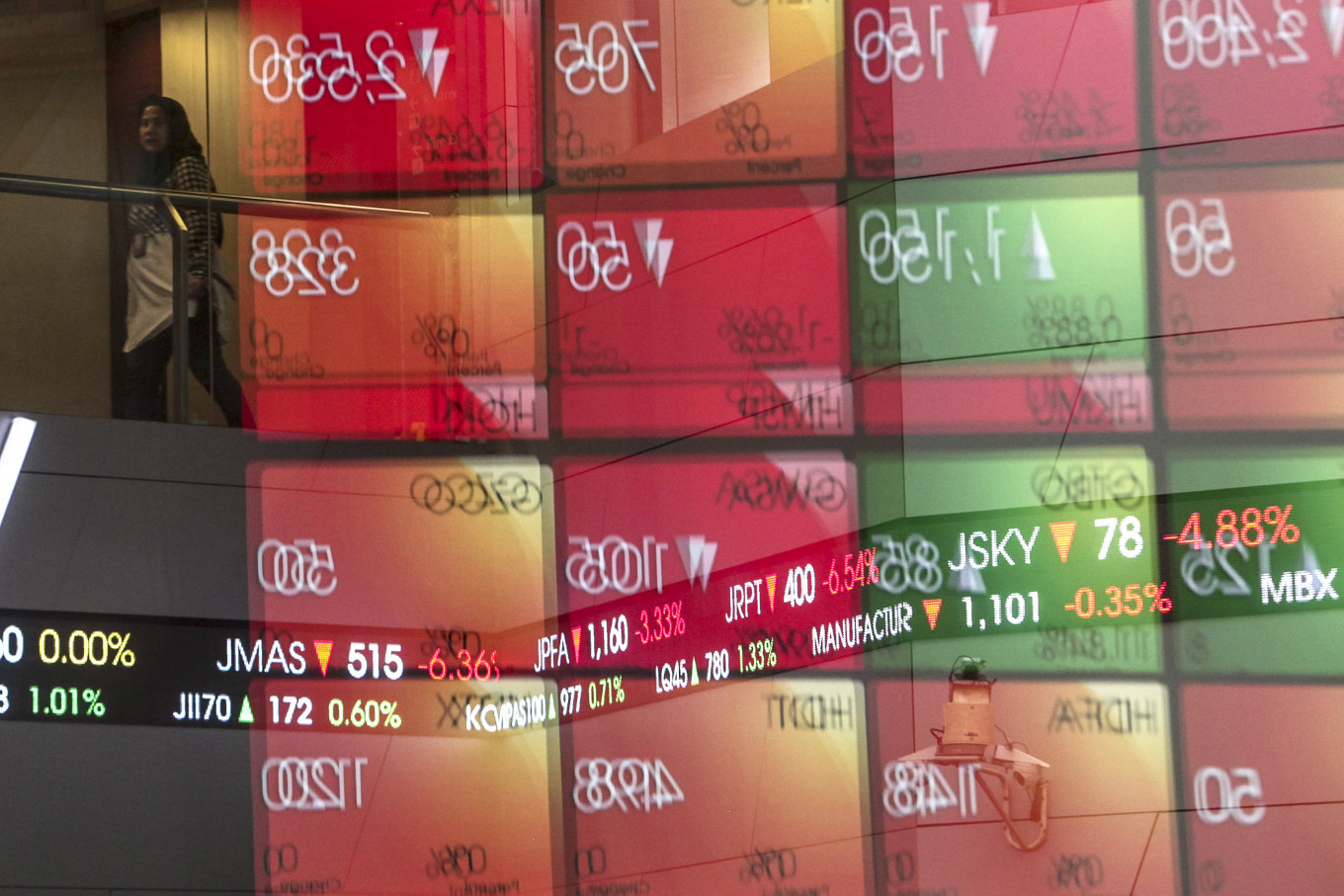Popular Reads
Top Results
Can't find what you're looking for?
View all search resultsPopular Reads
Top Results
Can't find what you're looking for?
View all search resultsJCI to rally beyond 5,500 despite looming recession: analysts
Change text size
Gift Premium Articles
to Anyone
T
he Jakarta Composite Index (JCI) is likely to continue its rally beyond 5,500 despite the looming recession and increasing number of COVID-19 cases, as the government’s COVID-19 response and the capital inflows from new domestic investors will boost investor confidence, analysts have predicted.
Mutual fund marketplace Tanamduit chief economist Ferry Latuhihin said on Monday that investor faith in the government’s national economic recovery (PEN) program had offset concerns about the continuous rise in confirmed coronavirus cases.
It is one of the reasons why the Indonesia Stock Exchange's (IDX) main gauge continued to gain and passed the 5,000 level after March’s crash, and it has also overshadowed the probability that the country will face a recession this year, he said.
“A recession is a given but the market is looking ahead and it is confident in the government’s ability to handle this crisis,” Ferry said during a market outlook webinar.
The government has allocated Rp 695.2 trillion (US$47.1 billion) to boost the economy and strengthen the healthcare system. The funding is also being used for business incentives, social safety net programs, as well as stimulus packages for state-owned enterprises (SOEs).
The government and Bank Indonesia (BI) have also agreed to a burden-sharing scheme worth Rp 574.9 trillion to finance the nation’s COVID-19 response.
Meanwhile, Indonesia’s economy contracted 5.32 percent in the second quarter, the first contraction since the aftermath of the 1998 Asian financial crisis.
Economists also expect that the country is likely to see another contraction in the third quarter, signaling a recession is under way. Meanwhile, the country’s COVID-19 case tally reached more than 180,600 as of Wednesday.
At the same time, the JCI has gained 14.4 percent in the past three months, since the market crash where it fell to 3,937 in March. On Wednesday the market closed at 5,311, up slightly by 0.02 percent from Tuesday’s close.
“If there’s no bigger outbreak happening globally, I’m convinced that the JCI could reach 6,000 by the end of 2020,” said Ferry, adding that the rally would be supported by abundant liquidity thanks to the United States Federal Reserve’s dovish stance of maintaining low interest rates to boost the US’ economic recovery.
He, however, said that the market would not be satisfied with only those policies as they would also look at Indonesia’s prospects in recovering from the crisis caused by the pandemic.
To ensure a fast recovery, he suggested the government expedite the COVID-19 budget realization in order to boost consumer spending.
As of Wednesday, the government had only spent 28.4 percent, Rp 197.88 trillion, of the total COVID-19 response budget, with disbursement hampered by administrative problems, among other issues.
Meanwhile, Trimegah Sekuritas economist Fakhrul Fulvian told The Jakarta Post that he also believed that the JCI would continue to rally and projected the index to reach around 5,600 to 5,800 at the end of this year.
However, he believes the rally will be supported more by the fresh liquidity from the rising number of investors during the pandemic, rather than the government’s policy.
“The gains the market has seen these past few months and onward is supported by an abundance of liquidity from domestic investors that have started to enter the capital market,” he said.
The number of investors in equities, mutual funds and bonds reached 3.02 million as of July, of which 42 percent were stock market investors, according to data from the Indonesian Central Securities Depository (KSEI). This is a 21.7 percent surge from 2.48 million by the end of December 2019.
Fakhrul went on to say that since the pandemic had created very little opportunity in the real sectors, businesspeople were becoming more interested in investing their idle money in the capital markets.
Domestic investors also dominate the country’s stock market, accounting for Rp 822 trillion in transactions, 64 percent of the trading value as of Wednesday.










